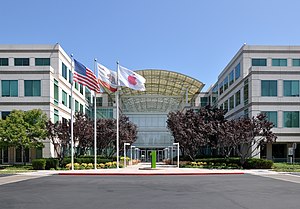How Many People Don’t Pay Taxes?
Jun 12
47% of Americans pay no income tax, according to many sources. Is this really true? Let’s take a look.
First of all, I’m going to present IRS data, so I’m limited to the information from tax returns. According to the 2010 US census the population of the United States was around 308.75 million people. The number of exemptions claimed on 2009 tax returns (the most current data available from the IRS) was 283.8 million. In other words, 25 million people – about 8% of the population – don’t appear anywhere on tax returns.
Who are these 25 million people? [survata]They could be people dodging taxes. They could be people who have paid their share of taxes in their lifetime (retired) or will pay their fair share at a later stage in their life (students). These may even be people who paid some amount of income tax during the year but aren’t filing for a refund (yes, this does happen).
Let’s work with the numbers we have from the IRS. Of the 140 million tax returns filed for the 2009 tax year, just over 58% paid taxes. So this means 42% of the people in this group didn’t pay taxes, right?
Wrong.
It means that 42% of the returns didn’t have any tax liability. What’s the difference?
Let’s walk through this example:
- Sam makes $3000 from his summer job and has no tax liability.
- Danielle and Thomas have three children: Mark, Lindsey, and William. They have tax liability of $150,000.
Looking at this example, what percent of people aren’t paying taxes? Is it fair to say 50? 50% of the tax returns (1 out of 2) have tax liability. Is it 33% (1 of the 3 adults aren’t paying taxes?). Is it 17% (1 of the 6 Americans aren’t paying taxes?) The people who are simply looking at the number of tax returns with taxes paid are going to say 50%. Is that right or wrong? I’ll let you decide.
If you choose 33% or 17%, let’s dig a bit deeper. Take a look on my article regarding how many people make more than $250,000. You’ll notice an correlation between number of exemptions (essentially household size) and income. The lowest income levels have the lowest number of exemptions (1.01), with this increasing until it plateaus around 3 in the $500,000 – $1,000,000 range.
There’s also a correlation between income level and likelihood of owing income tax. Less than 3% of tax returns with under $5000 in adjusted gross income owed any taxes, building to 77%+ in the $40,000 – $50,000 range and near 99% by the time we reach the $100,000+ range.
What’s my point? Let’s look at an extreme example. A million tax returns in the sub-$5000 range represent 1,010,000 Americans (1.01 exemptions per return). A million tax returns in the $500,000 – $1,000,000 range represent 3,050,000 people (3.05 exemption per return). Let’s take a sample of a million returns from each of these groups. Let’s further say that all one million returns in the $500,000 – $1,000,000 group have taxes owed and 160,000 returns in the sub $5000 group have taxes owed. That means that 1,160,000 / 2,000,000 – or 58% – of the returns have tax liability. However, these returns represent 3,211,600 or the 4,150,000 people – in excess of 77%. The basic mathematical concept here is weighted average.
An extreme example, yes. However, it does illustrate a valid point. The 42% of tax returns with no liability is going to represent less than 42% of the 283.75 million people covered by these returns.
Just want the data? Here it is!
Source: http://www.irs.gov/pub/irs-soi/09in11si.xls (compare column 6 to column 1)
| AGI | Filers | Pay tax |
| All returns | 140,494,127 | 58.27% |
| No adjusted gross income | 2,511,925 | N/A |
| $1 – $5,000 | 10,447,635 | 2.93% |
| $5,000 – $10,000 | 12,220,335 | 15.54% |
| $10,000 – $15,000 | 12,444,512 | 23.17% |
| $15,000 – $20,000 | 11,400,228 | 42.69% |
| $20,000 – $25,000 | 10,033,887 | 46.21% |
| $25,000 – $30,000 | 8,662,392 | 53.15% |
| $30,000 – $40,000 | 14,371,647 | 66.71% |
| $40,000 – $50,000 | 10,796,412 | 77.62% |
| $50,000 – $75,000 | 18,694,893 | 87.99% |
| $75,000 – $100,000 | 11,463,725 | 95.81% |
| $100,000 – $200,000 | 13,522,048 | 98.88% |
| $200,000 – $500,000 | 3,195,039 | 99.38% |
| $500,000 – $1,000,000 | 492,568 | 99.18% |
| $1,000,000 – $1,500,000 | 108,096 | 99.05% |
| $1,500,000 – $2,000,000 | 44,273 | 99.06% |
| $2,000,000 – $5,000,000 | 61,918 | 99.09% |
| $5,000,000 – $10,000,000 | 14,322 | 99.06% |
| $10,000,000 or more | 8,274 | 98.86% |
Other tax articles by Kosmo
[/survata]
Assorted
Income, Internal Revenue Service, Tax, Tax exemption, Tax Return, Taxes, United States
 RSS
RSS



